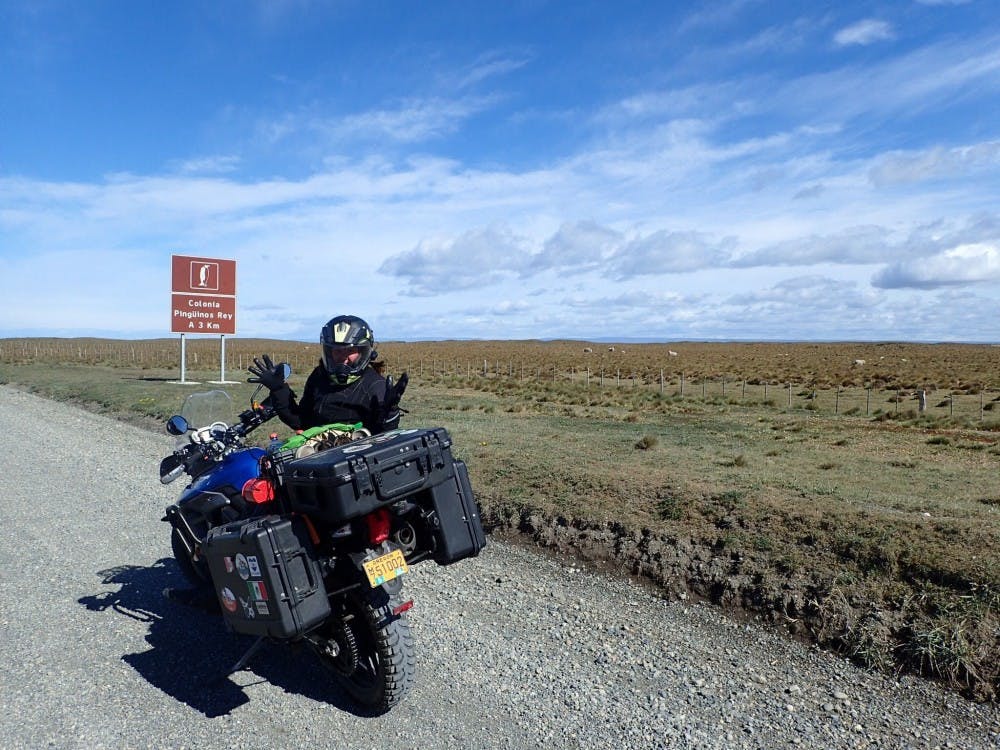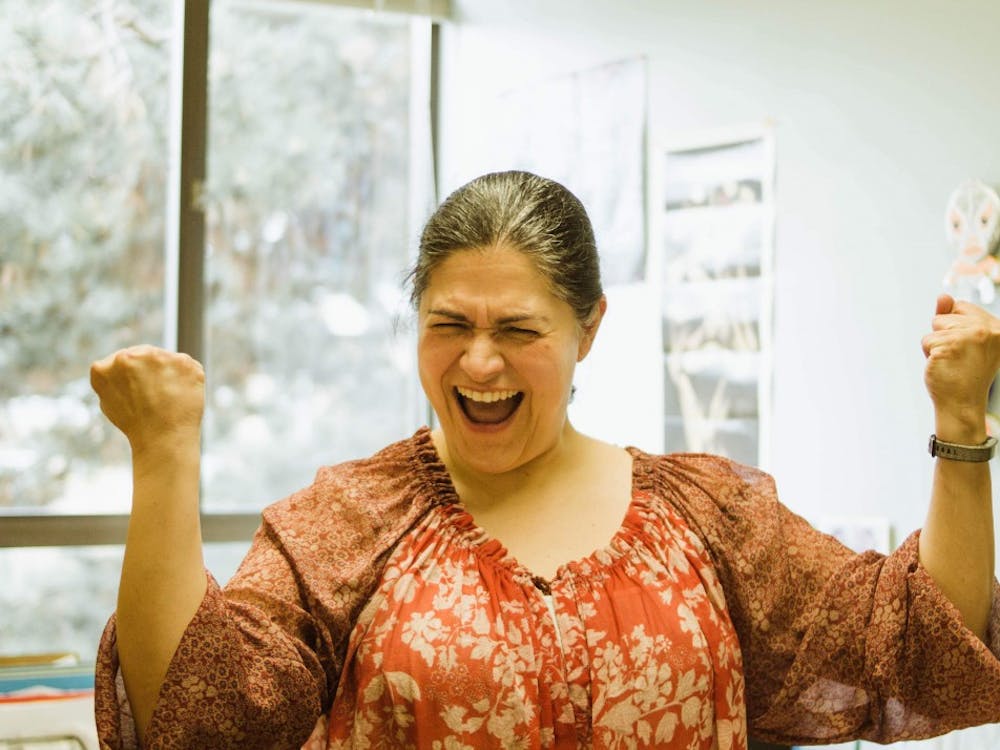Every seven years, University of Portland professors can apply for a semester or year-long sabbatical, which is a paid, extended break from campus duties to pursue other work related and personal goals. This often includes research, writing, volunteering, traveling and a host of other activities.
It requires intense planning and a clear goal career development, which is written and proposed to the dean and provost a year in advance of their intended break. Sabbaticals are rigorously judged and approved based on the strengths and abilities a professor will bring back to campus. Nestled between conducting research and writing reports, professors often return to UP with exhilarating stories from their time on sabbatical.
Tara Prestholdt
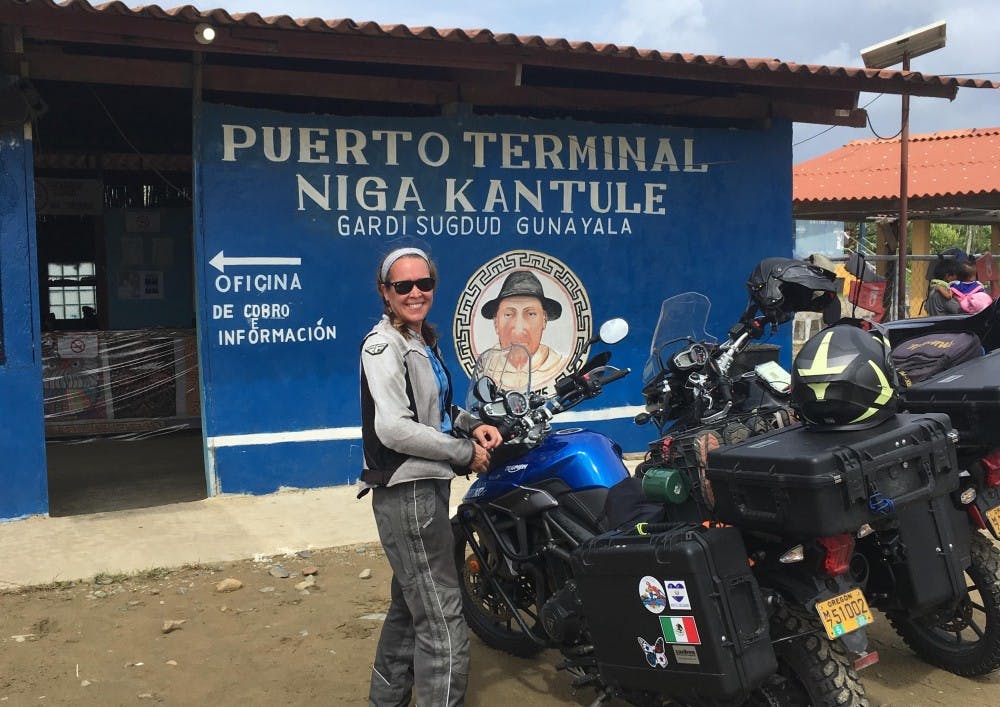
Professor Tara Prestholdt prepares to sail to Colombia from a port in Panama. Photo courtesy of Tara Prestholdt.
Tara Prestholdt, associate professor of biology and environmental studies, started her sabbatical hoping to see all the things she had only ever read about in textbooks. So, she and her husband hopped on their motorcycles and set off on a 138 day adventure with one goal: Argentina or bust.
“I knew that I didn’t want to go down there and slam it like a tourist, just spending two weeks and buying the hat or the t-shirt. I really wanted it to be an intimate experience, I wanted to earn it,” Prestholdt said. “That was a part of riding the motorcycle, I had to feel it, smell it, be a part of all of it.”
During her semester long sabbatical, she checked nine countries off of her bucket list and completed her lifelong dream of visiting the Galapagos islands. She got choked up explaining the reality of the privilege she possessed as a white American in the global south. In Bolivia, her only route was blocked for two days by an entire village protesting their lack of access to clean water.

After long weeks on the road, professor Tara Prestholdt arrives at the border of Chile. Photo courtesy of Tara Prestholdt.
“There were people living 18 (people) to a home the size of my office and I’m riding through their village on a 10,000 dollar motorcycle,” Prestholdt explained. “It was hard to see and harder not to feel guilty about it.”
However, she said her presence was a source of inspiration for the women she encountered, many of whom asked her how she was able to be on her own “moto” (motorcycle), instead of on the back of a man’s motorcycle. She was an example of female autonomy in a “machista” world.
Prestholdt’s sabbatical opened her eyes to the reach of pollution and the disproportionate effects that less developed countries feel. She was stunned by the amount of garbage she saw all the way down the Americas, beginning as soon as she got on I-5 and increasing as she moved south. Even in the Galapagos, one of the world’s most pristine archipelagos, the beaches were littered with microplastics.
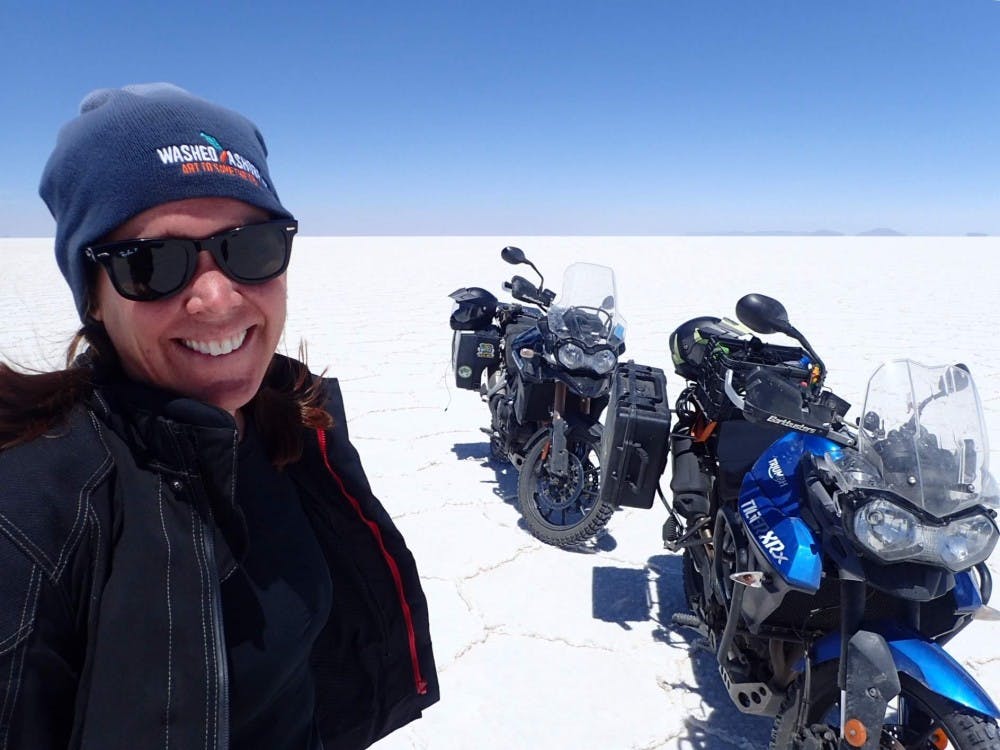
Prestholdt takes a picture at Salar de Uyuni, Bolivia - the largest salt flat in the world. Photo courtesy of Tara Prestholdt.
“Everyone wants to talk to me about the cool animals I saw and places I went,” Prestholdt said, “But no one wants to hear about the waste, especially the waste that we (Americans) have pushed on to other countries. Here in the Pacific Northwest, I think we put ourselves on a pedestal because we have our hydroflasks and our reusable canvas bags and call ourselves green, but let’s actually talk about the waste we produce.”
Since her return to UP, her classroom has become a more personal experience for both her and students. Instead of teaching about animals and plants from a textbook, she draws from her experiences.
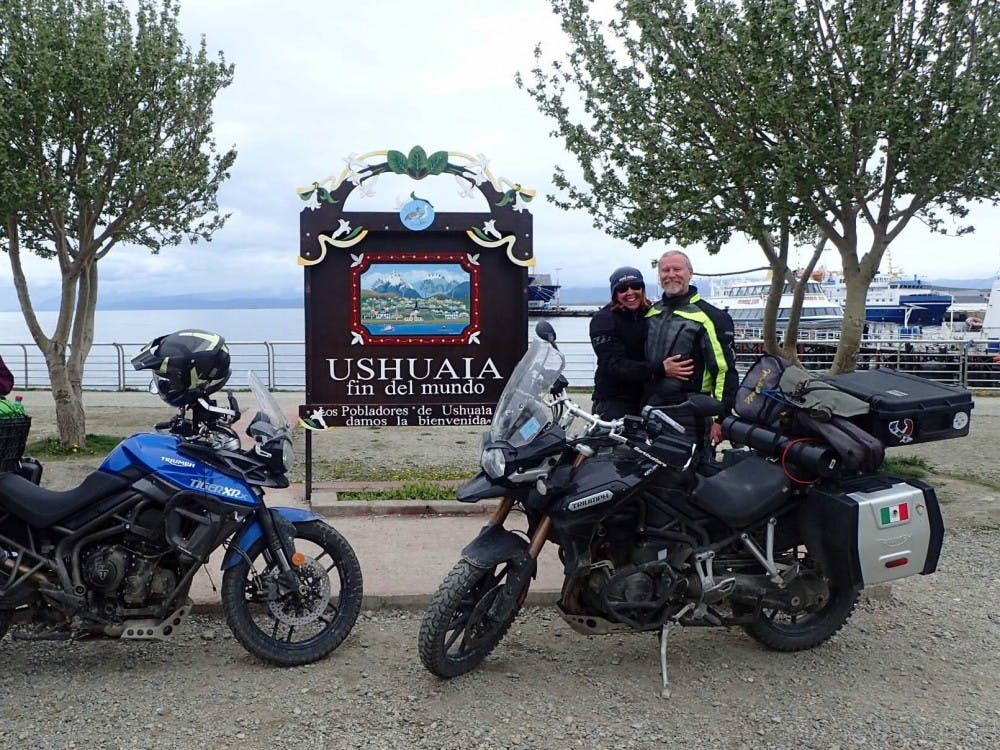
Prestholdt and her husband stand at the "end of the world" in Ushuaia, Argentina, the southernmost city in the world. Photo courtesy of Tara Prestholdt.
“Instead of just teaching from chapter four and saying koalas spit, I can share my story of being spit on by a koala. I can tell them about interacting with moray eels and spider monkeys and spiny lobsters. It makes it real for students,” Prestholdt said.
She also brought back a new sense of environmental urgency that she said is key to being a useful educator and a decent human being. She hopes to transmit this urgency to her students.
You can read more about her adventures and some of her blog posts in the Portland Magazine.
Terry Favero

Favero used a scooter to travel 40 kilometers through Kampot, Cambodia. Photo courtesy of Terry Favero.
Terry Favero, professor of human biology, visited four continents, 12 countries, 21 airports and knocked out three academic reports all in a semester sabbatical in the spring of 2019. He spoke at conferences in Warsaw, Taipei, and Melbourne, as well as conducted research on basketball training and soccer profiles in Lithuania with a colleague.
He also spent time with other UP faculty and partnered with Global Aid, a nonprofit founded by a former UP student that focuses on funding middle schools in rural Cambodia.

Stephen Mazujian Middle School students stand to welcome visitors to their school, a project sponsored by Global ADE. Photo courtesy of Terry Favero.
“Often times, kids who are off in the bush in Cambodia don’t receive formal education. They don’t have money for teachers, uniforms, or textbooks,” he said. “I opened a textbook and was shocked to see they’re still teaching science from the ’50s. It was really a different experience.”
But Favero’s sabbatical wasn’t all work and no play. He and his son, a graduating senior from American University, spent 10 days eating their way through Italy and France. He and his wife also explored Australia and New Zealand.
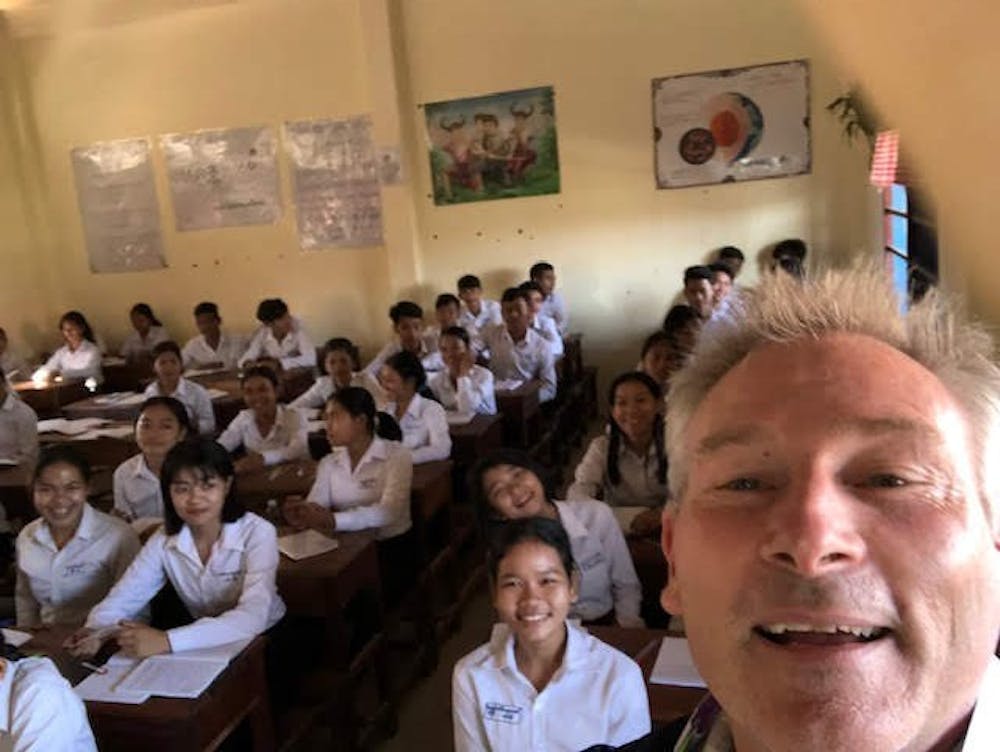
Favero takes a photo with Stephen Mazujian students. He plans to return and continue teaching alongside students from UP. Photo courtesy of Terry Favero.
In the midst of his globe trotting and research, Favero gave back to the community by teaching a cooking class to low income Portland residents. He trained to become an assistant chef and lead “Cooking Matters,” a class through the Oregon Food Bank that teaches skills to cook nutritional and affordable meals. They also send each attendee home with all the ingredients to the recipe they learned.
Favero describes himself as a weaver because he has a tendency to combine his interests and responsibilities into one cohesive plan. This description suits his sabbatical, which combined his goals of complete personal and academic transformation with his love for travel, family, food and Oregon.
Nick McRee

Nick McRee, a sociology professor at UP, spent his sabbatical in Japan where he taught at Hitotsubashi University.
Nick McRee, professor of sociology and criminology, was yearning to shake up his routine.
“I was looking for an opportunity to get removed from my social networks and go to a place that was going to be pretty foreign to me and would provide the opportunities to force me to recalibrate how I felt and thought about those networks,” McRee said.
In 2015, McRee and his family picked up their lives and moved 4,842 miles to Tokyo, where he taught at Hitotsubashi University and Tsuda University for a year. McRee received a Fulbright grant to fund his research on a spike in crime rates among the elderly, a unique phenomena that drew him there initially. Japan’s 65+ population has higher crime rates than those ages 12 to 17, the typical years for delinquency. They are often committing petty crimes with the intention of going to jail to find community and consistent care.
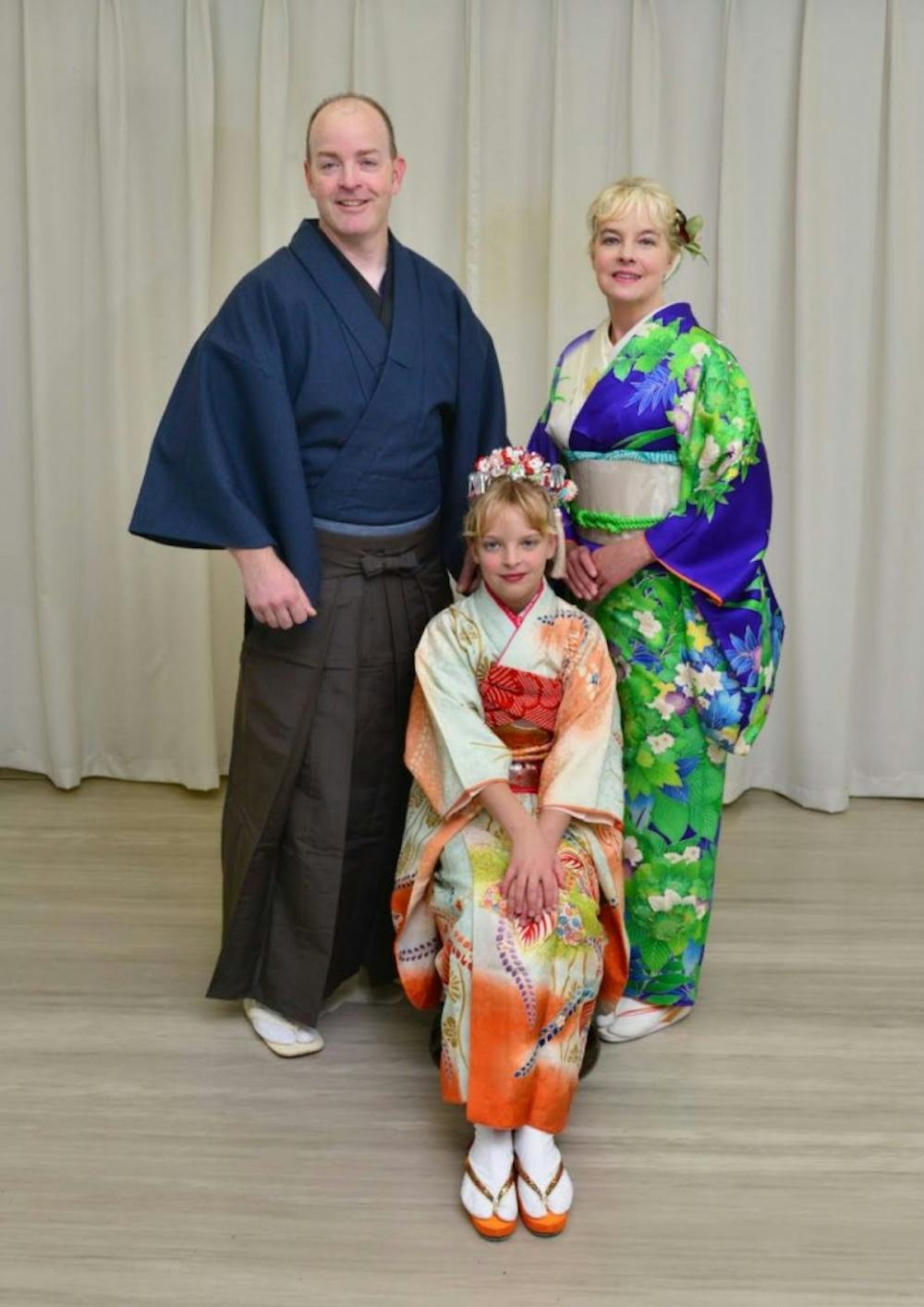
McRee and his family pose for a picture in traditional Japanese kimonos. Photo courtesy of Nick McRee.
“Traditionally, the young are expected to take care of the old, so Japan doesn’t have a very robust care system for their aging population,” McRee said. “We are seeing a shift in younger generations away from this care system, which is causing economic frustration and deprivation in the elderly. People who have never had a criminal record start committing crimes past 65, and this seems to be the reason.”
He also observed conditions in Japan’s rigorous correctional facilities and volunteered in nursing homes with his family. He even brought his bike from Oregon and explored Japan’s rural and urban life on two wheels.
McRee found himself acting as an informal ambassador of the United States leading up to the 2016 election. The Japanese are highly exposed to American culture and politics, but on a very surface level, and are exceptionally curious about it.
“I was asked to explain the politics and lives of 330 million people, which was hard since I am only one person,” McRee said.
As McRee said, he has become a storyteller in the classroom because of this ambassador role. He now teaches in a way that does not assume everyone has the same understanding or underlying context, since he had to create context in Japan.

McRee visited the Atomic Bomb Dome, now part of Hiroshima Peace Memorial Park and World Heritage Center, which stands only feet from where the first nuclear bomb of World War II was dropped. Photo courtesy of Nick McRee.
Since his return to UP, he has gone back to Japan three times and has hosted several friends he met there at his home. He said the sweetest part of his sabbatical was the close friendships that he made and hopes that the rest of his career will involve staying connected to Japan.
“I think a lot of Americans don’t see the importance of a sabbatical, they say they’re too expensive and not productive enough, but a sabbatical gives you an opportunity to press pause and really reflect and redefine your personal and professional life going forward,” McRee said. “It changed my life and the lives of my family and I hope one day that it is an opportunity that is presented to more people.”
Catherine Cieminski is a reporter for The Beacon. She can be reached at cieminsk22@up.edu.



